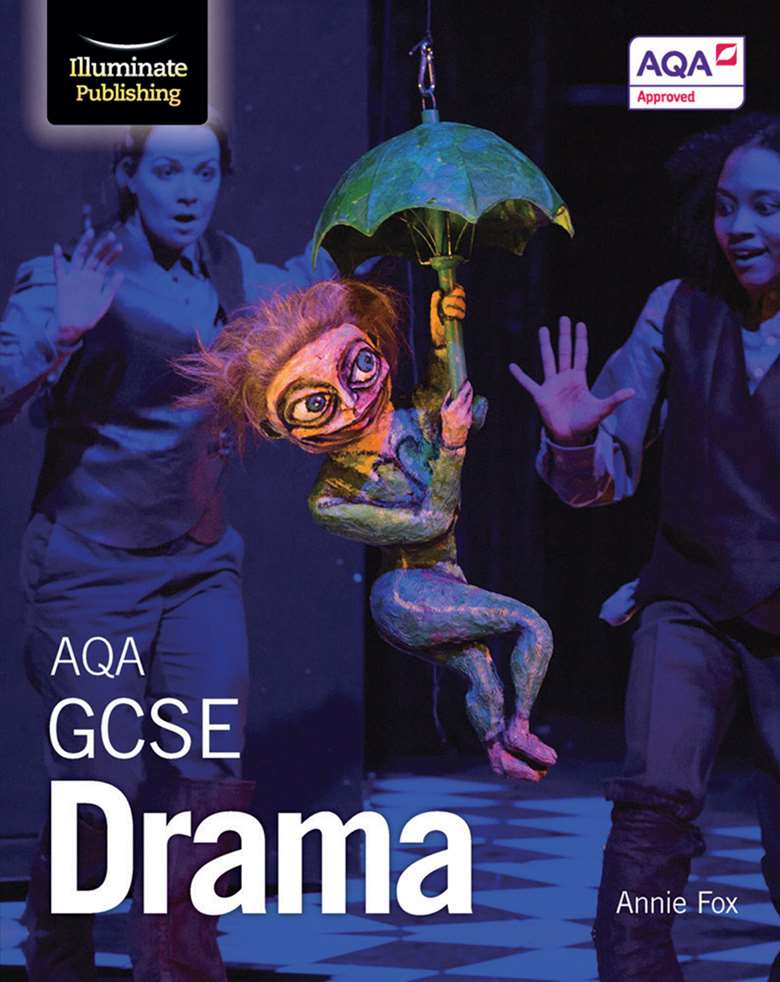Drama study guides: To buy or not to buy?
Dan Clay
Thursday, October 22, 2020
Drama's a practical subject, so what can you learn from a textbook? Dan Clay finds out

The highly practical nature of Drama means quite often the very notion that textbooks and study guides should take much of a role in the classroom is a difficult one to embrace. In this digital age, written words of guidance on the page may seem a touch out of place for those keen to brand the subject as an alternative to more academically rigorous ones. But do they have something to offer that means teachers might just be missing a trick?
‘No book can substitute for the skills a teacher brings to a Drama classroom and it would be a rare (and disappointing) Drama room where lesson after lesson began with “Now turn to page XXX”, says Annie Fox, author of Illuminate Publishing's popular AQA GCSE Drama Textbook.
‘However,’ she says, ‘Good Drama textbooks complement and aid learning in a number of ways. They are another source of expertise in the classroom, they save teachers time in preparing resources and they can aid work done out of the classroom.’
‘Many Drama teachers are in small or one-person departments, so a book written by an experienced, qualified Drama specialist offers fresh approaches and ideas. Examination-specific textbooks are useful for ensuring that all elements of an examination are covered. In the case of our Illuminate Drama books, we provide production photographs, set and costume sketches and context images; all of which could be very time-consuming for teachers, who are already putting in very long days, to create.’
But what do those teachers make of these classroom aids, according to Fox?
‘From my experience as a writer, teachers have warmly welcomed our textbooks and play guides,’ she enthuses. ‘In the feedback we've received, teachers have referred to their awarding body textbooks as their “bible” and frequently recommend them to others.’
And that's a trend that's only likely to become more popular, Fox believes, in this post-lockdown learning environment.
‘With the possible increase of remote learning, good quality textbooks and revision guides may become more important to provide structure and focus for at-home learning.’
However, it's in the classroom that such guides can really be utilised by teachers. While the likes of Bloomsbury Publishing focus on specific textual editions and support for plays such as A Doll's House and DNA, others such as Illuminate, Pearson, and Rhinegold Education focus on current specifications. But what do those ‘candle-at-both-ends’ creative teachers make of them in the classroom?
The teacher's perspective
‘Study guides and textbooks are a tricky thing to use in the Drama classroom because of the nature of the subject. It would be so lovely to have a book of questions and answers, like you might find in Chemistry, but there is no formula for the creativity and independent thought required in Drama,’ says Anna Weddell, Drama Subject Leader at Wallington County Grammar in Surrey.
‘I have predominantly used the AQA and OCR GCSE textbooks and found both very helpful, although have only ever dipped into them rather than followed whole sections for a particular unit. [But] many of the activities can be adapted to suit the needs of your students,’ she adds.
‘So often we don't have access to a full theatre or expensive set and design equipment, so examples and images from real productions have been really useful, especially if they're accompanied by comments from the designer/directors involved,’ Weddell explains. ‘Tips and questions for gifted students are great, and a check list for the set texts is super helpful for teachers to use to generate a scheme of work, or to help weaker students prioritise specific areas of their learning.’
In this digital age, however, especially at a time when many students may be accessing visual and auditory aids online at home to support their Drama learning, what can textbooks and study guides offer for students both at home and in the classroom?
‘Navigating textbooks is often simpler than navigating the mountain of resources online — the quality is much better,’ Weddell adds. I've been particularly impressed by a lot of the images found in Annie Fox's textbooks – they're so much better than what you find on Google!’
‘In the classroom, I also know that students are focused if they have a textbook. If they're using the internet, it's much harder to police as they could be surfing any other webpage when I'm not looking,’ she says. ‘Having said that, it'd be nice to be pointed in the direction of a few online resources within the book.’
Clearly a hit with both teachers and students, there's one final group for whom these study guides may also reap rewards, especially in the current climate.
‘Many parents want to support their children's learning,’ Fox explains. ‘And one way of doing this is by having good quality resources they can work through at home.’
Study guides can be found for Edexcel at www.rhinegoldeducation.co.uk/product/edexcel-gcse-drama-study-guide/ and www.rhinegoldeducation.co.uk/product/edexcelas-and-a-level-drama-and-theatre-study-guide/
For other exam boards, and for the Designing pathway specifically on Edexcel: www.illuminatepublishing.com
And also at www.collins.co.uk www.cgpbooks.co.uk www.hoddereducation.co.uk and www.pearson.co.uk

